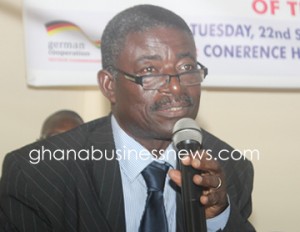
Ghana’s petroleum revenues for 2014 were not maximized and utilized effectively, according to a report by the Public Interest and Accountability Committee (PIAC) .
According to the committee, which is mandated by law to oversee management of petroleum revenues, the revenues were spread over a wide range of projects, diluting its impact, instead of being utilized on only a select few.
The Petroleum Revenue Management Act 2011 (Act 815), requires that government concentrates the petroleum annual budget funding amount (ABFA) which is the budgetary allocation from petroleum revenues, on four or less socioeconomic areas to maximize impact.
The report, launched on Tuesday September 22, 2015, notes for instance that an amount of GH₵215.69 million which is the portion of the ABFA allocated to “Road and other infrastructure” – one of four areas to benefit from the ABFA that year – was spent on three sub-sectors: roads and highways, education and energy, in contrast with five sectors in 2013 and 8 in 2012.
“Although this is a positive move which deserves commendation, a detailed analysis of the roads and other infrastructure projects indicates that the ABFA is still being spread thinly on several projects within the sectors, effectively minimizing its potential impacts,” the report says.
The committee said the impact of the ABFA to the “roads and other infrastructure” sector and each other sector that benefitted from it, will be very insignificant if measured.
The total contribution of the petroleum revenues to the roads and highways budget for 2014, was about only 16 per cent. The average expenditure of the various road projects meanwhile is about GH₵1.62 million.
This wide utilization of the ABFA on many projects in contrast with concentration on a handful of projects, is believed to be resulting in initiation of several road projects, many of which do not get completed and often attract payments for delays and arrears.
“We need a focus. If one or two or three projects have been identified and they can be executed and finished, it is better than touching a whole lot of projects and not finishing – and trying to pay arrears on those projects”, Professor Paul K. Buah-Bassuah, Chairman of the Public Interest and Accountability Committee said.
This same concern of the Public Interest and Accountability Committee on the current mode of utilization of the petroleum annual budget funding amount, was raised recently by policy think tank Imani Ghana on September 11.
Total oil production in 2014 from the Jubilee oil field was 37,201,691 barrels, generating $978.02 million.
By Emmanuel Odonkor
